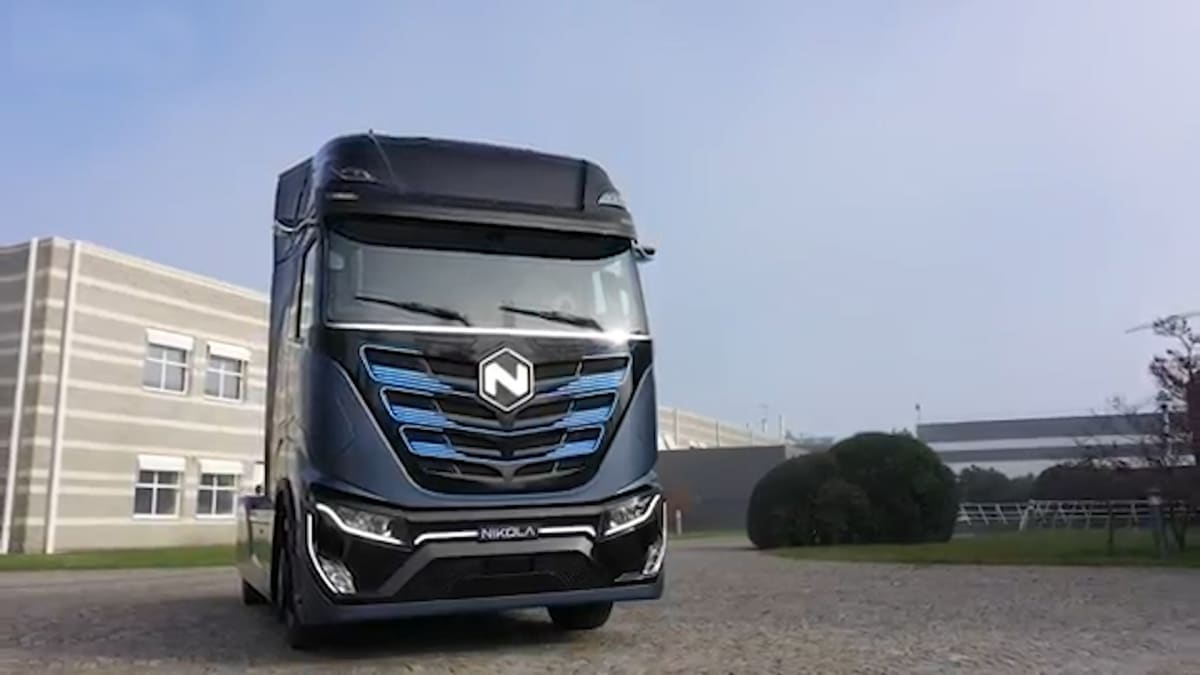
Nikola (NKLA) reported weaker than expected first quarter results, with a loss of $169.1 million as the Phoenix-based vehicle manufacturer looks to refocus its strategy.
The company reported a $0.26 per share loss, which came in line with analyst expectations, but posted a miss on the top line, with revenue coming in at $11.12 million, $1.23 million below expectations. Shares fell 10% in early trading after the report.
In the earnings release, Nikola’s chief executive, Michael Lohscheller noted that the company is reprioritizing its business, with a renewed focus on hydrogen fuel cell trucks, HYLA hydrogen ecosystem, and autonomous technologies. As part of this shift, the company is selling its stake in its European joint venture, refocusing its business operations in North America.
Lohscheller joined TheStreet’s J.D. Durkin to discuss the company’s new approach, as well as his turnaround strategy for the company in the video above.
Full Video Transcript Below
J.D. DURKIN: You stepped into your role really early last year. Talk to us about how you’ve been able to turn around the company after what many outside observers would say was a bit of a tumultuous time for Nikola. And how does that turnaround really align with any of your personal long term goals?
MICHAEL LOHSCHELLER: Right so as you say, I came in March last year, and I think it’s very simple in a way, because we need to focus on what matters for customers, right. And that is the battery electric truck, the fuel cell truck, now the hydrogen infrastructure. And we try to do this in a very humble way, but we also have competitive advantages. Right I mean, who else has a fuel cell truck out there with a 500 mile range? And that’s what we try to promote and I think always be focused on facts, figures and products. That’s how we do it and that’s also what our customers are expecting from us. And I think we just look forward into the future and not the past.
J.D. DURKIN: The company said today it needs to remain focused on where it has competitive and first maker advantages. Michael, what are those opportunities? Where are they?
MICHAEL LOHSCHELLER: So we clearly decided that we focus on North America and we have given our joint venture to our partner Iveco in Europe because we can’t do everything right. So our focus is North America and in particular the fuel cell truck. And then we also set up the energy infrastructure, right? So last week we announced that together with our partner Volterra, we set up up to 50 hydrogen stations in the U.S. Think about that. Who else has 50 stations for heavy trucking mobility? So that’s what we are focused on fuel cell truck energy, hydrogen and then North America.
J.D. DURKIN: The company also announced it was pausing production until July for, quote, the first saleable hydrogen fuel cell trucks. Talk to me about that pause. What goes into a decision like that?
MICHAEL LOHSCHELLER: Yeah, that’s correct. So basically the pause now, the production of the battery electric truck end of May, and then we use June on July for the preparation of the fuel cell truck. And then once we ramp up the fuel cell truck production, we can produce on one manufacturing line, actually both trucks. And I think this flexibility is important, but we also have enough inventory on the battery electric truck and therefore we decided to pause it to prepare for fuel cell and make sure the inventory comes in line and is more balanced.
J.D. DURKIN: Michael, Nikola also announced recently a partnership with Plus AI. Talk to us a bit more about your plans for autonomy in your vehicles.
MICHAEL LOHSCHELLER: That’s a great partnership and a very important announcement because we go the first steps in terms of various levels of autonomy. In this specific partnership with Plus AI, we have various safety elements. You can also do like lane changing and it’s very, very helpful for drivers because it helps in terms of safety but also in terms of driving capabilities. And we want to continue on this path. This is the first step, very good feedback from customers. But I could also imagine that in a few years time we go actually from hub to hub without a driver. But this is only the first step now with Plus AI, more to come on this exciting topic.
J.D. DURKIN: Of course the EV market, many would say, pretty saturated. There’s at least a lot of big names in the space. Where do you feel Nikola uniquely can stand out against competitors in that field?
MICHAEL LOHSCHELLER: Clearly on the fuel cell truck and on the hydrogen, because hydrogen gets so much attention, also so much public support, I mean, look at what inflation reduction on the federal level is providing. But also on a state level, I mean, the subsidies in California for fuel cell truck are up to $288,000. So all this together, Nikola, is all about the fuel cell truck and the hydrogen. And there we really have a competitive advantage.
Don't Miss: Tesla Wanna-Be Lucid Delivers More Bad News







